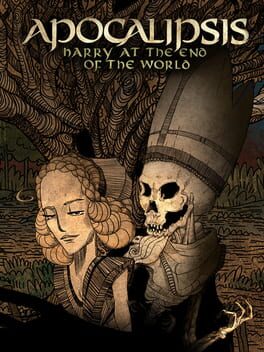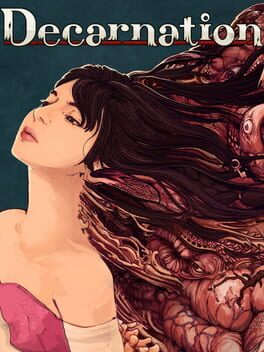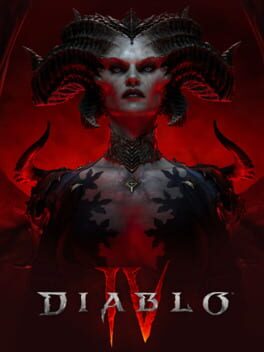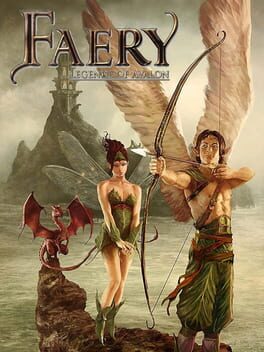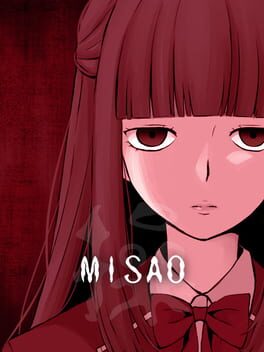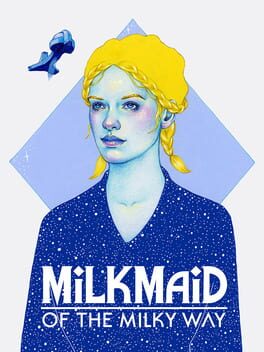skogstroll
15 reviews liked by skogstroll
Apocalipsis
2018
claims of inspiration from durer is just a pathetic namedrop; there's nothing in common aesthetically or spirutally. this is a 2-color flash art monstrosity that misunderstands the work of great artists and of the middle ages altogether. as a game it doesn't fare much better. the puzzles are primitive newgrounds fodder (despite more namedrops by the dev who likens it to several worthwhile titles) which prove to be a chore to complete because the character's pace and pathfinding make navigating the map so frustrating the game is more aptly called a point-and-click-and-wait-and-wait-some-more game. further, the art is many times so rudimentary and single colored the logic of the puzzle turns into knowing what to do but not knowing what the artist intended these items or interactables to be. putrid! skip!
Dragon's Dogma II
2024
In one of its previews, Hideaki Itsuno was deliberately evasive when asked about why Dragon’s Dogma II’s title screen initially lacks the II, saying only “nothing in this game is unintentional.” You can draw whatever conclusion you like from that, but I think I’ve a different interpretation from most – it’s less a signal that this is a reimagining or a remake or whatever else in disguise than a display of confidence in how well he and his team understand what makes it tick.
As much as I’ll never wrap my head around how they got the first Dragon’s Dogma running on 7th gen hardware (albeit just about), I would’ve said it was impossible not to feel how much more II has going on under the hood in even the briefest, most hasty of encounters if it weren’t being so undersold in this respect. While my favourite addition is that enemies’ individual body parts can now be dragged or shoved to throw them off balance, tying into both this new world’s more angular design and how they can be stunned by banging their head off of its geometry, yours might be something else entirely with how many other new toys there are to play with. One particularly big one’s that you and your pawns can retain access to your standard movesets while clinging to larger enemies if you manage to mantle onto them from the appropriate angle, but you’ve gotta watch out for the newly implemented ragdoll physics while doing so, since the damage received from getting bucked off now varies wildly depending on your position at the time and the nearby environment as a result of them. Successive strikes create new avenues of offence akin to Nioh’s grapples, pressuring you to get as much damage in as you can before letting one loose and taking your target out of its disadvantage state, while also enabling you to keep them in a loop if you’re able to manipulate their stun values well enough. Layers of interaction just keep unravelling further as you play – controlling the arc you throw enemies or objects in, tackling smaller enemies by grabbing them mid-air, corpses or unconscious bodies of bosses now being tangible things you can stand on top of instead of ethereal loot pinatas… I would’ve taken any one of these in isolation. To have them all, plus more, every one being wholly complementary and faithful to the scrambly, dynamic, improvisational core of Dragon’s Dogma’s combat? It’s i n s a n e to me that someone can undergo even a confused few minutes of exposure to any of this and reduce it to “more of the first” or what have you.
Your means of approaching enemies or general scenarios which return from the first game’re further changed by II’s more specialised vocations. Having spent most of my time with Warrior in both titles, I love what’s been done with it in particular. They’ve taken the concept of timing certain skills and applied it to almost every move, anything from your standard swings to its final unlockable skill becoming faster and faster as you time successive inputs correctly – this is only the slow, basic version of the latter and I still feel bad for whatever I batter with it – with chargeable skills now also doubling as a parry for attacks they collide with, similar to DMC5’s clashing mechanic. It’s emblematic of the devs’ approach to vocations in general; Archer’s relatively lacking melee options and litany of flippy, full-on Legolas nonsense encourages keepaway where its four predecessors were all slightly differing flavours of “does everything”, Thief trades access to assault rifle-like bows and invites stubbiness for being able to navigate this world’s much rockier terrain like it’s a platformer, Fighter no longer has to waste skill slots to hit anything slightly above your head and has more versatile means of defence in exchange for melee combat being more punishing in general, etc. It’s to the extent that choosing between any two vocations feels like I’m switching genres, man. In a landscape where people are demonstrably content with having no means of interacting with big monsters other than smacking their ankles, how is even a pretty simple interaction like this not supposed to feel like a game from the future?
On simple interactions, much of this would be lessened if it weren’t for the loss gauge in tandem with the camping system and how these accentuate the sense of adventure which the first game built. The persistent thoughts of “how do I get there?” are retained, but only being able to fully recuperate your health via downtime with the lads and/or ladesses fills every step of the way toward the answer with that much more trepidation, bolstered further by the aforementioned verticality and on the more presentational side of things by how your pawns actually talk to each other now. It leads to some very memorable, emergent experiences which are personal purely to you – one I’m especially fond of involved resting after killing a drake, having my camp ambushed in the middle of the night by knackers who were too high up for me to exercise my k-word pass and having to trek all the way back to Bakbattahl with barely a third of my maximum health as my party continually chattered about how freaky the dark is. I take back the suggestion I made regarding potential changes to the healing system in my review of the first game, because even superfans (or, maybe, especially superfans) can, and do, think too small.
I realise in retrospect that even I, on some level, was wanting certain aspects of Dragon’s Dogma to be like other games instead of taking it on its own merits, something II’s seemingly suffered from all the more with how much gaming has grown since the original’s release, the average player’s tolerance for anything deviating from the norm and, presumably, frame of reference growing ever smaller. Look no further than broad reactions to dragonsplague and its effects (which I won’t spoil) being only the second or third most embarrassing instance of misinformed kneejerk hostility disguised as principled scepticism which enveloped this game’s release to the point you’d swear Todd Howard was attached to it – we want consequences that matter, but not like that! Even if you aren’t onboard with this being the coolest, ballsiest thing an RPG has bothered and will bother to do since before I was born, how can you not at least get a kick out of starting up your own homegrown Dragonsplague Removal Service? You thought you could escape the great spring cleaning, Thomyris, you silly billy? I’m oblivious like you wouldn’t believe, had her wearing an ornate sallet by the time she’d first contracted it and still noticed her glowing red eyes every time, so I’m at a loss as to how it could blindside anybody. It vaguely reminds me of modern reactions to various aspects of the original Fallout; a game which you can reasonably beat in the span of an afternoon, designed to be played with a single hand, somehow commonly seen as unintuitive because it just is, okay? Abandon all delusions of levelheadedness: if a Fallout game with a timer were to release now, the world’s collective sharting would result in something similar to that universe’s Great War or, indeed, Dragon’s Dogma II’s own post-game.
For as many hours as I’ve poured into the Everfall and Bitterblack across two copies of the original, they’re not what I think of when I think of Dragon’s Dogma (or particularly interesting, in the former’s case), which is adventuring in its open world. In that regard, I can’t be convinced that II’s post-game isn’t far more substantial, comparatively rife with monsters either unique or which you’re very unlikely to encounter prior to it, changes to the world’s layout beyond a hole in the ground of one city, its own mechanics (one actually a bit reminiscent of Fallout’s timer), questlines and even setpieces. It’s got a kaiju fight between a Ray Harryhausen love letter and a demonic worm thing which, as of the time of writing, roughly 2% of players have discovered, and instead of being praised for the sheer restraint it must’ve taken to keep something like that so out of the way, it’s chastised for it?
I’m not sure any other game’s ever made me realise how divorced what I want out of games seems to be from the wider populace. So much of this is 1:1 aligned with my tastes that the only thing that feels potentially missing’s the relative lack of electric guitars, but even then I’d be a liar if I told you that Misshapen Eye, the dullahan’s theme, the griffin’s new track, the post-game’s somber piano keys or the true ending’s credits song among others haven’t gotten stuck in my head at some stage anyway or didn’t perfectly complement the action through dynamically changing. It manages this despite clearly not caring about what you or I or anyone else thinks or wants from it. It’s developed a will and conviction all of its own. It’s Dragon’s Dogma, too.
As much as I’ll never wrap my head around how they got the first Dragon’s Dogma running on 7th gen hardware (albeit just about), I would’ve said it was impossible not to feel how much more II has going on under the hood in even the briefest, most hasty of encounters if it weren’t being so undersold in this respect. While my favourite addition is that enemies’ individual body parts can now be dragged or shoved to throw them off balance, tying into both this new world’s more angular design and how they can be stunned by banging their head off of its geometry, yours might be something else entirely with how many other new toys there are to play with. One particularly big one’s that you and your pawns can retain access to your standard movesets while clinging to larger enemies if you manage to mantle onto them from the appropriate angle, but you’ve gotta watch out for the newly implemented ragdoll physics while doing so, since the damage received from getting bucked off now varies wildly depending on your position at the time and the nearby environment as a result of them. Successive strikes create new avenues of offence akin to Nioh’s grapples, pressuring you to get as much damage in as you can before letting one loose and taking your target out of its disadvantage state, while also enabling you to keep them in a loop if you’re able to manipulate their stun values well enough. Layers of interaction just keep unravelling further as you play – controlling the arc you throw enemies or objects in, tackling smaller enemies by grabbing them mid-air, corpses or unconscious bodies of bosses now being tangible things you can stand on top of instead of ethereal loot pinatas… I would’ve taken any one of these in isolation. To have them all, plus more, every one being wholly complementary and faithful to the scrambly, dynamic, improvisational core of Dragon’s Dogma’s combat? It’s i n s a n e to me that someone can undergo even a confused few minutes of exposure to any of this and reduce it to “more of the first” or what have you.
Your means of approaching enemies or general scenarios which return from the first game’re further changed by II’s more specialised vocations. Having spent most of my time with Warrior in both titles, I love what’s been done with it in particular. They’ve taken the concept of timing certain skills and applied it to almost every move, anything from your standard swings to its final unlockable skill becoming faster and faster as you time successive inputs correctly – this is only the slow, basic version of the latter and I still feel bad for whatever I batter with it – with chargeable skills now also doubling as a parry for attacks they collide with, similar to DMC5’s clashing mechanic. It’s emblematic of the devs’ approach to vocations in general; Archer’s relatively lacking melee options and litany of flippy, full-on Legolas nonsense encourages keepaway where its four predecessors were all slightly differing flavours of “does everything”, Thief trades access to assault rifle-like bows and invites stubbiness for being able to navigate this world’s much rockier terrain like it’s a platformer, Fighter no longer has to waste skill slots to hit anything slightly above your head and has more versatile means of defence in exchange for melee combat being more punishing in general, etc. It’s to the extent that choosing between any two vocations feels like I’m switching genres, man. In a landscape where people are demonstrably content with having no means of interacting with big monsters other than smacking their ankles, how is even a pretty simple interaction like this not supposed to feel like a game from the future?
On simple interactions, much of this would be lessened if it weren’t for the loss gauge in tandem with the camping system and how these accentuate the sense of adventure which the first game built. The persistent thoughts of “how do I get there?” are retained, but only being able to fully recuperate your health via downtime with the lads and/or ladesses fills every step of the way toward the answer with that much more trepidation, bolstered further by the aforementioned verticality and on the more presentational side of things by how your pawns actually talk to each other now. It leads to some very memorable, emergent experiences which are personal purely to you – one I’m especially fond of involved resting after killing a drake, having my camp ambushed in the middle of the night by knackers who were too high up for me to exercise my k-word pass and having to trek all the way back to Bakbattahl with barely a third of my maximum health as my party continually chattered about how freaky the dark is. I take back the suggestion I made regarding potential changes to the healing system in my review of the first game, because even superfans (or, maybe, especially superfans) can, and do, think too small.
I realise in retrospect that even I, on some level, was wanting certain aspects of Dragon’s Dogma to be like other games instead of taking it on its own merits, something II’s seemingly suffered from all the more with how much gaming has grown since the original’s release, the average player’s tolerance for anything deviating from the norm and, presumably, frame of reference growing ever smaller. Look no further than broad reactions to dragonsplague and its effects (which I won’t spoil) being only the second or third most embarrassing instance of misinformed kneejerk hostility disguised as principled scepticism which enveloped this game’s release to the point you’d swear Todd Howard was attached to it – we want consequences that matter, but not like that! Even if you aren’t onboard with this being the coolest, ballsiest thing an RPG has bothered and will bother to do since before I was born, how can you not at least get a kick out of starting up your own homegrown Dragonsplague Removal Service? You thought you could escape the great spring cleaning, Thomyris, you silly billy? I’m oblivious like you wouldn’t believe, had her wearing an ornate sallet by the time she’d first contracted it and still noticed her glowing red eyes every time, so I’m at a loss as to how it could blindside anybody. It vaguely reminds me of modern reactions to various aspects of the original Fallout; a game which you can reasonably beat in the span of an afternoon, designed to be played with a single hand, somehow commonly seen as unintuitive because it just is, okay? Abandon all delusions of levelheadedness: if a Fallout game with a timer were to release now, the world’s collective sharting would result in something similar to that universe’s Great War or, indeed, Dragon’s Dogma II’s own post-game.
For as many hours as I’ve poured into the Everfall and Bitterblack across two copies of the original, they’re not what I think of when I think of Dragon’s Dogma (or particularly interesting, in the former’s case), which is adventuring in its open world. In that regard, I can’t be convinced that II’s post-game isn’t far more substantial, comparatively rife with monsters either unique or which you’re very unlikely to encounter prior to it, changes to the world’s layout beyond a hole in the ground of one city, its own mechanics (one actually a bit reminiscent of Fallout’s timer), questlines and even setpieces. It’s got a kaiju fight between a Ray Harryhausen love letter and a demonic worm thing which, as of the time of writing, roughly 2% of players have discovered, and instead of being praised for the sheer restraint it must’ve taken to keep something like that so out of the way, it’s chastised for it?
I’m not sure any other game’s ever made me realise how divorced what I want out of games seems to be from the wider populace. So much of this is 1:1 aligned with my tastes that the only thing that feels potentially missing’s the relative lack of electric guitars, but even then I’d be a liar if I told you that Misshapen Eye, the dullahan’s theme, the griffin’s new track, the post-game’s somber piano keys or the true ending’s credits song among others haven’t gotten stuck in my head at some stage anyway or didn’t perfectly complement the action through dynamically changing. It manages this despite clearly not caring about what you or I or anyone else thinks or wants from it. It’s developed a will and conviction all of its own. It’s Dragon’s Dogma, too.
Decarnation
2023
Decarnation has such a promising premise and fantastic art design, but the plot constantly moves in circles with no real direction or purpose. It tries so hard to convey something meaningful, but it only scratches the surface of the many heavy themes it attempts to portray. The last two chapters were so full of cheesy and melodramatic dialogue that, for a moment, I thought I was stuck in a post-2000 shonen anime. The rhythm mini-games are pretty fun though.
Decarnation
2023
A stunningly harrowing game that explores the horrors of female objectification, stalking, isolation and accepting oneself and ones trauma. Using relatively simple game play mechanics that are incorporated in multiple ways, the narrative and vibe is clearly a higher priority than any sort of difficulty or oppressing game play. Comfortable enough to leave those things to it's writing and use of visual and audio art to explore such stress inducing ideas in such beautiful ways.
For the price, length and narrative I personally find criticisms of Decarnation being gameplay light incredibly odd. It strikes all the right notes of a horror puzzle game and that's all it needs. If you need something emotionally driving that you can simultaneously relax and experience anxiety through I can't recommend Decarnation enough.
For the price, length and narrative I personally find criticisms of Decarnation being gameplay light incredibly odd. It strikes all the right notes of a horror puzzle game and that's all it needs. If you need something emotionally driving that you can simultaneously relax and experience anxiety through I can't recommend Decarnation enough.
Diablo IV
2023
The art is pretty good with a few particular screens that look very nice and the chill music compliments it well. I personally wasn't a fan of the rhyming writing and felt like had more than a few lines that were real clunkers, either stretching for rhymes or didn't fit any particular rhythm.
The puzzles made this the kind of adventure game that I'm not a big fan of. It expects you to go everywhere, click on everything, and use every item on everything else. If you try to think logically about what to do next you won't get very far because you need to think like an adventure game and occasionally poke a frog with a needle.
The choice to make the aliens so obviously racially coded is pretty bad! You have aliens come and abduct someone and still turned it into a white savior narrative! Bad!
The puzzles made this the kind of adventure game that I'm not a big fan of. It expects you to go everywhere, click on everything, and use every item on everything else. If you try to think logically about what to do next you won't get very far because you need to think like an adventure game and occasionally poke a frog with a needle.
The choice to make the aliens so obviously racially coded is pretty bad! You have aliens come and abduct someone and still turned it into a white savior narrative! Bad!
The artwork, atmosphere, rhyming dialogue and cow centered narrative was charming. However, there is a great amount of tedium that comes with the point and click adventure genre. There were some solutions that were not possible (for me) without the help of a guide. Deeply problematic choice to follow the schema of Indian independence and depict them as an alien race.
